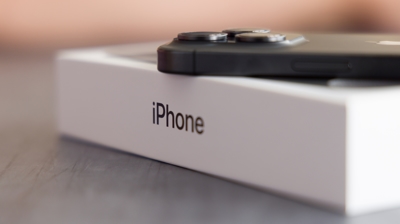
Washington D.C. Consumer Class Action Attorneys
On the surface, civil class action suits and mass torts suits can look and sound extremely similar. However, there is one extremely important distinction: in a mass tort case, every member of the impacted class is treated as an individual case. In a civil class action suit, all members of the impacted class pursue compensation by filing their suit through a single legal action on behalf of the entire class.
Consumer class action suits are a valuable tool for individual consumers to use to hold large corporations or businesses accountable for business practices or products that cause them harm, especially when this practice causes either the same or extremely similar harm to a wide swath of people. However, they require a skilled and competent legal team that can work diligently to protect the rights and interests of impacted individuals. At Cuneo Gilbert Flannery & LaDuca, LLP, we offer years of experience handling a wide range of cases. We are a firm equally at home on Capitol Hill, in a heated political debate, or in our office discussing how your case has impacted you. We pack a punch, but we never lose sight of how our work impacts the lives of our clients.
We would love to hear more about your case and learn how we can assist you and others who have been wronged as consumers. Call us at (202) 789-3960.
Examples of Consumer Class Action Cases
If you believe you have been wronged as a consumer and you wish to learn more about your rights, talk to our team as soon as possible! We would love to help you determine if you may have a consumer class action case on your hands. While these cases may be large, they all start with either a single consumer or a small group of consumers who have been wronged bringing their situation to a skilled attorney who can help them review their options.

Litigation. Legislation. Results.
Here's What Sets CGFL Apart
-
Persuasive Advocacy
Success comes from strategic persuasion, whether in the courtroom, before Congress, or in public policy debates. We know when to negotiate and when to fight.
-
Legal & Policy Experience
Our strength lies in bridging the gap between litigation and public policy, seamlessly navigating courts, legislatures, and government agencies.
-
Individualized Strategy
Every client and case is unique. We leverage our team’s diverse skills to craft tailored legal solutions that deliver real results.

How are Consumer Class Action Cases Handled?
The process for each class action case is different when you get into the details, however they generally tend to follow a pretty standard path from start to finish. This path does take a while (these cases can sometimes take months or even years to reach a resolution), but it’s important to follow these steps diligently to pursue the best outcome.
- Initial filing: These cases begin with a lead plaintiff (and their legal team) filing their lawsuit against the company, outlining their complaint and defining the impacted “class.” Usually the defendant will file a “motion to dismiss” within 2-4 months. If this motion is denied, the process will move forward.
- Discovery: This is the investigative step in the class action process where all parties exchange evidence, including testimony, information, and even evidence examples cited in the initial suit. This is when legal teams can make compulsory requests for documents and records, interrogatories, and depositions.
- Motion for certification: Once the discovery process is complete, the plaintiff and their legal team must motion for the suit to receive “class” certification, meaning that the interests in this case impact all members in the requested class, and that enough people are in the “class” to justify elevating the suit to a class action case.
- Motion for summary judgment: Once discovery has reached a point where either party feels as though they have enough evidence to support their side of the case, they may petition the court for summary judgment, which essentially means asking the court to make a final decision. The court does not have to do this and may deny the motion if it feels that a case is incomplete or that the requesting side has not provided sufficient evidence to support their claim.
- Trial: It’s worth noting that trials in class action suits are extremely rare. In fact, less than one percent of all class action suits ever go to a full trial. However, if the case has not been resolved after all motions have been filed, the case can then proceed forward.
- Settlement: This is when both parties come together to compromise on the resolution to this case. These negotiations can take substantial time, depending on the complexity of the case, but this is often the much faster track to a suit’s conclusion compared to a full trial. Once both parties agree to a settlement, the terms must be submitted to the court who will determine if the terms are fair and adequate based on the facts of the case. If so, it approves the settlement.
- Class notice: Once a settlement has been reached, the court notifies all members of the impacted class about the settlement and gives class members the option of joining the class or excluding themselves. Class members generally forfeit their right to file suit against the defendant in these cases, so those who wish to pursue their own legal suit may opt out from this settlement.
- Final approval: Once class members have been given adequate time to respond after being notified, the case goes to a Final Fairness Hearing, where the court considers any objections to the settlement and the number of class members who requested to be excluded when weighing the fairness of the settlement once again. If they deem the settlement to still be fair, the case is closed and the benefits are distributed to the class members.
Need assistance with a class action suit? If you live in the Washington D.C. area, reach out to Cuneo Gilbert Flannery & LaDuca, LLP today and let our team assist you.

CGFL has a long history of successful advocacy in cases of national significance. Explore some of our spotlight cases here.

